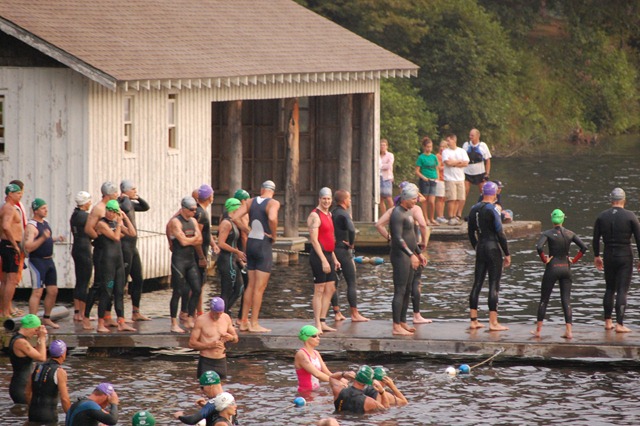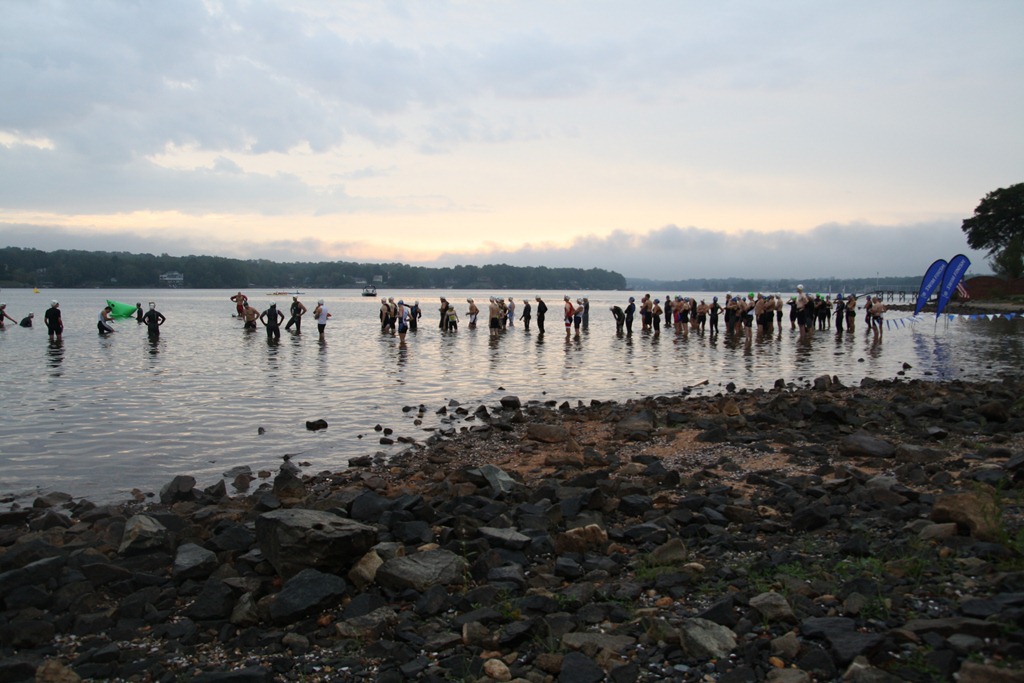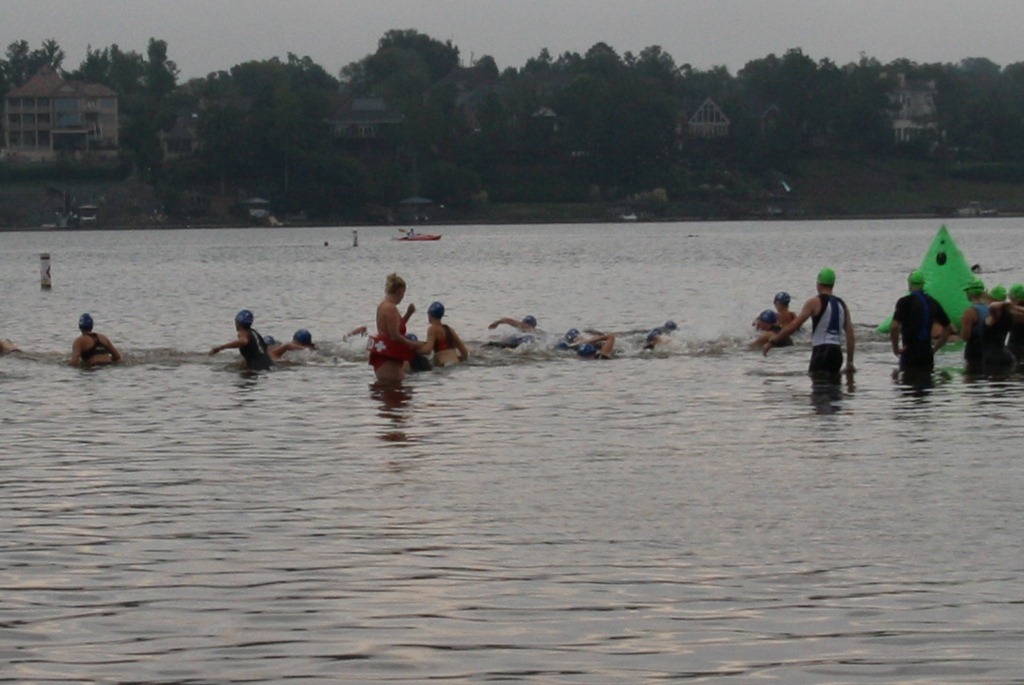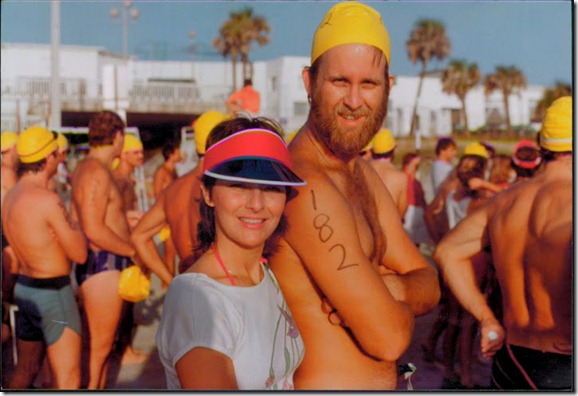I’m reposting some oldies but goodies this week. Hope you enjoy!
——————————-
Recently, I got an interesting email from a reader that prompted an even more intriguing Google hunt and conversation with DadHTP.

Sharon emailed me to say, “While researching some upcoming races I discovered that one had a Clydesdale/Athena category. I had heard of the Clydesdale runner before but Athena? I figured it must be the equivalent for women, and at 5’11â€, I knew I must fit the category. I Googled it and was surprised to see the different weight definition for Athena. It said most races put the weight at 150 pounds for Athena, but one even had it at 130 pounds! At 130 pounds, I would be severely underweight. I realize that the point is so you can compare your time with others of similar size, but if based only on weight, how can you compare a 5’ woman at 150 pounds with a 5’11†woman at 150 pounds? I’m curious to know what your opinion is on this category for races.â€
If you’re not aware, in most triathlons (and in many running races), there are several different categories by which awards are given. First, of course, are the overall places – i.e. first woman, first man. But then, categories can break down in the following way:
- By gender and age groups
- By relay team (which are usually not broken down by gender; maybe if it’s a huge race)
- By gender and novice or experienced racer
- By gender and military involvement
- And by Clydesdale/Athena size and age group

As alluded to in Sharon’s email, the Clydesdale/Athena categories are based on weight. The official USA Triathlon rules state:
Athletes competing in the Clydesdale division must be a minimum of 220 pounds and athletes in the Athena division must be a minimum of 165 pounds.
Note: these weight standards are new – when I first wrote this post, it was 200 and 150 pounds. I’ve edited the post throughout to reflect the rule change.
Due to my height and frame, I do not qualify for the Athena category, so I’ve never given it much thought. But Sharon’s email really piqued my interest. WHY do they have the Clydesdale/Athena categories in the first place? WHAT is the purpose? And, if you qualify, SHOULD you enter?
After doing some light digging on triathlon message boards, I noticed that manyexperienced male triathletes who qualified to race in the Clydesdale category wrote that they would be ‘embarrassed’ to enter the category because they thought it would be ‘cheating’ because they are experienced triathletes. Even more surprising was how many of the men wrote that the category was for ‘less fit’ guys, despite the fact that the official rules make no assumptions about fitness level. After all, 220 pounds for a man can be perfectly healthy and fit size for many heights, as is 165 pounds for a woman at many heights.
So – I asked DadHTP. Dad was really into triathlons in the 1980s and has donehundreds of amateur cycling events. And he’s 6’4†and 230 pounds – a Clydesdale by definition, through and through.
“I noticed that men especially seem to think that the Clydesdale category is for newbie racers or ‘out of shape’ guys, despite the fact that 200 pounds is perfectly healthy for many heights,†I told him. “Do you know the actual purpose of the Athena and Clydesdale categories?â€
It turns out that, according to Dad’s theory, race officials aren’t making any assumptions about fitness level when it comes to the Athena and Clydesdale categories. His opinion is that generally speaking, for each sport, having a larger build means you must expend a greater effort to get the same result. Take running – if all other fitness factors are held constant, a 6’4â€, 230-pound guy will struggle to run as fast as a 5’10â€, 180-pound competitor, simply because he’s hauling more weight. This is especially true in cycling when you’re doing a lot of climbing. When we would ride together, I’d blow past him on hills, despite the fact that I’ve got 5’3.5†legs. He’d, of course, fly past me on the downhills because he weighed more.
Thinking of what Sharon wrote in her email to me, I pointed out that dividing the category by weight alone isn’t totally fair because it doesn’t account for fitness level, but Dad kind of rolled his eyes and said that life isn’t fair. Hah. Thanks, Dad.
In conclusion, at least according to DadHTP, the Athena and Clydesdale categories are really designed to even the playing field as much as possible for men and women with larger builds. It’s not that smaller builds are inherently more athletic or fit; they’re just different. Athena and Clydesdale groupings are just one more way to divide competitors into categories so people are competing against other athletes with similar physical qualities to them (just as they do with gender, age, experience, etc).
Now, whether the reality of the Athena and Clydesdale categories is what I read about on the message boards (more for introductory novices) or what DadHTP thought it was designed for (to simply even the playing field without making an assumption about fitness level or experience) is up for debate and, I’m sure, variable from race-to-race. I couldn’t find any official USAT language on the purpose of the categories, so I’m not sure of the official stance (but here’s an interesting NY Times blog entry about the subject). And whether the cut-offs should be 220 pounds for men and 165 pounds for women is an entirely different discussion!

For most of my races, the only ‘alternative’ category that I’ve been able to enter was a “My First Tri†category, which was intended for people racing that distance for the first time, people who were super nervous, or people who were getting back into the sport after a long hiatus. I entered the category not because I thought I would place – I knew that was hopeless! I entered because I had never raced that distance before and still felt super unconfident in the water; for that race, the waves were organized by category, so I knew I’d be surrounded by other novices in the swim. It was very comforting to know that no ‘pros’ were going to swim over me in an attempt to pass me! Racing on an even playing field – even though I knew I wasn’t going to place – made me feel more confident, and I ended up kicking that race’s booty… by my own standards, at least.
Have you ever entered a race category besides age group? Would you consider doing it now? Edited to add: What do you think of the change from 200/150 pounds to 220/165 pounds?


I’m hoping to finally get into tri’s after my next marathon/first ultra coming up, but I’ve never heard of Clydesdale or Athenas before. Thanks for explaining this!